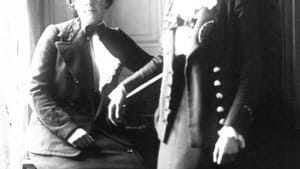Ladies first
Week two of the Philadelphia Orchestra's Paris Festival (second review)

A funny thing happened at the start of the Paris Festival’s second week. The first work on the program was to be a piano concert by Chopin, but there was no piano on stage. All the orchestra chairs were in their spots and filled with musicians, and there was no space for bringing in a Steinway.
People sitting behind me speculated that a piano might be lowered from the ceiling, or that the soloist might play an “air piano.”
Sister act
When conductor Yannick Nézet-Séguin came on stage he explained that he decided, after the programs were printed, to add a piece of music before the concerto. The surprise added a sense of occasion, and of fun, and the choice of music was equally welcome. It was the lovely, impressionistic D'un Matin de Printemps (“Of a Spring Morning”) by Lili Boulanger.
The conductor Igor Markévitch called Boulanger “the greatest of the women composers of the history of music; beautiful, precocious, astonishing.” She was the younger sister of Nadia Boulanger, the famed teacher of such diverse pupils as Aaron Copland, George Gershwin, Quincy Jones, Virgil Thomson, Daniel Barenboim, Philip Glass, and Astor Piazzolla. Boulanger suffered from childhood with an immune deficiency and Crohn’s disease, and died in 1918 at 24. (Her older sister lived until 1979.)
This piece was a perfect addition because it was pleasing and melodic while simultaneously underlining the point of the festival. The composer and her sister were a vital part of Paris’s musical life.
Paris by way of Warsaw and Russia
Next, the esteemed Louis Lortie and his instrument made their entrance. The French-Canadian pianist has a restrained, lyrical touch. He accentuated the concerto’s elegance and delighted us with his nimble passage work.
Chopin was a Pole, and he wrote and premiered his Concerto No. 1 in E minor, op. 11, in Warsaw. He then moved to Vienna before eventually settling in Paris. So, even as I enjoyed this performance, I continue to wonder why it was inserted into a festival devoted to the city of Paris.
After intermission, Nézet-Séguin led Stravinsky’s score for Petrushka, with a floating quality that seems appropriate for a ballet. In conversation afterwards, Yannick said its airy sound reminds him of French music. That’s an interesting argument for including it in these concerts, but he did not expand on the idea, and nothing was said from the podium or included in the program booklet.
Petrushka features irregular rhythms with unusual colors and timbres. We heard jazzy brass, quivering clarinet, scampering flute, belching bassoon, and insistent tympani, while the string players changed quickly — back and forth — from plucking to bowing. One wonders why it’s not nearly as frequently performed as Stravinsky’s Sacre du Printemps, premiered two years later. The two pieces have similar nervous energy and propulsive force.
The story and composition are Russian, and some of its melodies are actual Russian folk songs. A sentimental waltz in the middle is adapted from music composed by Joseph Lanner, an Austrian. Stravinsky completed his composition while staying in Switzerland. Impresario Serge Diaghilev then came to Paris with Stravinsky and their countrymen, designer Alexander Benois and choreographer Mikhail Fokine, for Petrushka’s premiere in 1911; that’s its only link to Paris.
Despite this caveat, I’m pleased the performance was recorded live by Deutsche Grammophon and look forward to acquiring it. (As with other Philadelphia Orchestra concerts, this program will be broadcast by WRTI-FM in February or March.)
To read Linda Holt's review, click here.
To read Steve Cohen's review of week one of the Philadelphia Orchestra's Paris Festival, click here.
What, When, Where
Paris Festival: Week Two. Yannick Nézet-Séguin, conductor. Louis Lortie, piano. Boulanger, L., Of a Spring Morning; Chopin, Piano Concerto No. 1 in E minor, Op. 11; Stravinsky, Petrushka (1947 version). January 19-21, 2017, at the Kimmel Center's Verizon Hall, 300 S. Broad Street, Philadelphia. (215) 893-1999 or philorch.org.
Sign up for our newsletter
All of the week's new articles, all in one place. Sign up for the free weekly BSR newsletters, and don't miss a conversation.

 Steve Cohen
Steve Cohen